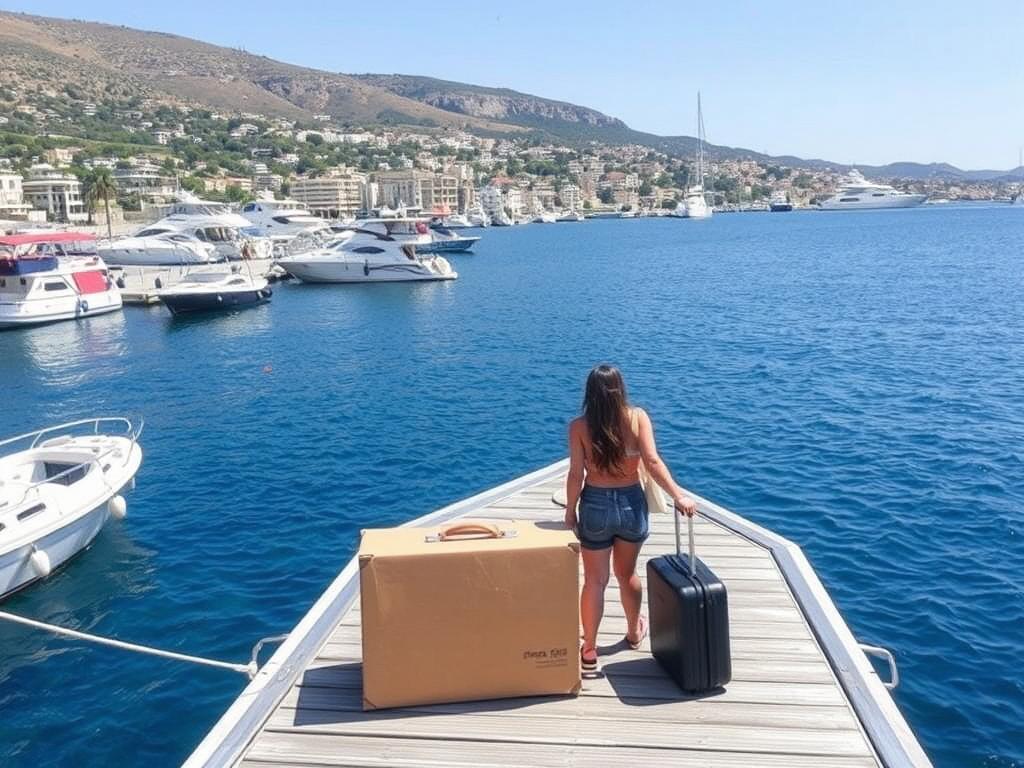Importing personal belongings into Cyprus involves a detailed understanding of the Cyprus customs rules that govern what can be brought in, how much duty you might pay, and the necessary paperwork you must complete. Whether you are relocating, visiting for an extended period, or returning as a resident, knowing the protocols for import personal goods Cyprus is essential to avoid delays or unexpected fees at entry. This guide offers a comprehensive exploration of the regulations, exemptions, procedures, and practical tips to navigate the Cyprus customs landscape confidently.
Overview of Cyprus Customs Rules
Cyprus customs rules are designed to regulate the flow of goods into the country, protect local markets, and enforce public safety standards. The rules vary depending on the type of goods, their value, their intended use, and the traveler’s residency status. For personal items, Cyprus customs usually differentiates between duty-free imports and items subject to customs duties and taxes. Understanding this distinction is crucial before planning your shipment or travel.
People who intend to bring belongings Cyprus from abroad need to check whether their items qualify for duty exemption thresholds, the necessary customs declarations Cyprus requires, and any restrictions on specific goods. Customs duties in Cyprus are governed under the European Union regulations, as Cyprus is a member of the EU Customs Union. This means many rules align with broader EU standards, but there are country-specific nuances to pay attention to.
Familiarity with Cyprus customs rules minimizes delays and unnecessary charges when importing personal goods.
Who Needs to Declare Personal Items?
All individuals entering Cyprus carrying goods that exceed certain values or quantities must make a customs declaration Cyprus. This applies regardless of whether the goods are new or used. For travelers bringing personal goods, the declaration threshold generally allows duty-free entry up to a specific limit. If your import exceeds these limits, customs duties or value-added tax (VAT) may apply.
Temporary visitors who bring items intended solely for personal use or gifts within allowed limits can often benefit from duty free Cyprus privileges. However, persons who are relocating permanently to Cyprus are required to declare all household goods, vehicles, and other belongings on arrival. Cyprus customs often requires detailed inventories for these cases, particularly if goods are being imported under a transfer of residence scheme.
If you are unsure whether your shipment requires a customs declaration Cyprus, it’s best to declare proactively to avoid penalties.
Duty Free Cyprus: What Does It Cover?
The concept of duty free Cyprus applies to specific quantities and types of goods that can be imported without paying customs duties or VAT. The limits are established primarily for travelers arriving from non-EU countries and for specific categories of personal goods. Items such as alcohol, tobacco, perfumes, and luxury gifts all have clearly defined maximum volumes or values allowed.
The general duty free allowances include:
| Category | Allowance |
|---|---|
| Alcoholic beverages | 1 liter spirits or 2 liters fortified wine or 4 liters still wine |
| Tobacco products | 200 cigarettes or 100 cigarillos or 50 cigars or 250 grams of tobacco |
| Perfume and Eau de Toilette | 50 ml perfume and 0.25 liters eau de toilette |
| Other goods | Up to €430 value for air/sea travelers, €300 for others |
Exceeding these amounts requires payment of customs duties and VAT. In contrast, goods brought from other EU member states into Cyprus largely move under free circulation policies unless they fall under specific excise categories. This makes it easier for residents relocating from EU countries to bring personal belongings.
Be aware of duty free Cyprus limits to avoid unexpected fees and to maximize your allowance legally.
Importing Personal Goods Cyprus: Customs Procedures
When you bring belongings Cyprus, the customs procedures you face depend on the nature of your entry and the goods you carry. For personal goods under the duty free limits or goods from EU countries, minimal formalities generally apply. However, for larger shipments or high-value items, customs may require a formal import process.
The typical steps involved include:
- Preparing a detailed inventory of goods, especially for relocation shipments.
- Filling out customs declaration Cyprus forms accurately, declaring quantity, value, and origin.
- Presenting receipts, proof of ownership, and any exemption certificates if applicable.
- Paying any customs duty, VAT, or other fees assessed.
- Undergoing technical or safety inspections if the goods include regulated items such as electronics or vehicles.
In cases where you import household items as part of a permanent move, Cyprus customs may allow exemptions if you’ve owned and used the goods abroad for at least six months before moving. You must prove residency intentions and provide inventories translated into Greek or English. Failure to comply can result in delays or penalties.
Proper preparation and documentation accelerate the Cyprus customs clearance process for personal goods.
Special Considerations for Vehicles and Electronics
Transporting vehicles into Cyprus involves additional customs complexities beyond standard personal goods. To bring a vehicle duty free Cyprus, the owner must meet several criteria, including demonstrating genuine change of residence. Import duties are calculated based on the vehicle’s age, engine size, and origin. Environmental taxes may also apply.
Electronic devices, especially new or high-value items, must comply with Cypriot and EU safety and technical standards. Cyprus customs may inspect or test imported electronics to ensure compliance. Failure to meet these requirements can result in seizure or fines. It’s advisable to check in advance whether your electronics require special certification or approvals.
Vehicles and electronics require detailed compliance checks when bringing belongings Cyprus to avoid costly issues.
Prohibited and Restricted Personal Items
Cyprus customs rules prohibit the import of certain items outright and restrict others under specific conditions. The aim is to prevent illegal activities, protect public health, and uphold safety standards.
Common prohibited items include:
- Illegal drugs and substances
- Counterfeit products and pirated media
- Weapons or dangerous items without proper permits
- Endangered animal products
Restricted items, such as certain foodstuffs, plants, and medicines, require prior authorization or veterinary/phytosanitary certificates. Travelers bringing such goods should consult Cyprus customs before arrival. Misdeclaration or undeclared prohibited items can result in seizures, fines, and criminal charges.
Always verify that your personal belongings comply with Cyprus customs rules to avoid confiscation or legal troubles.
Tips for a Smooth Customs Experience When Bringing Belongings Cyprus
Careful planning is key when importing personal items to Cyprus. Here are some practical steps to make the customs process manageable:
- Research current Cyprus customs rules well in advance.
- Keep receipts and documentation of all goods to prove value and origin.
- Complete customs declaration Cyprus forms truthfully and in detail.
- Pack personal items neatly and prepare inventories when possible.
- Consult with shipping agents or customs brokers familiar with Cyprus procedures.
- Declare all items that exceed duty free Cyprus limits to avoid fines.
- Retain copies of submitted customs declarations.
Following these guidelines helps prevent customs clearance delays and costly misunderstandings. Cyprus customs officers appreciate transparency and accuracy in declarations and paperwork.
Transparency and preparation are your best defenses against customs complications when importing to Cyprus.
Your Next Step: Seamlessly Importing Personal Goods to Cyprus
Understanding Cyprus customs rules is fundamental to ensuring a smooth transition when bringing your personal belongings Cyprus. By mastering the import personal goods Cyprus process, you can take full advantage of duty free Cyprus allowances and fulfill all customs declaration Cyprus requirements without hassle. Proper preparation, clear documentation, and awareness of limitations will protect your possessions and your budget.
Whether moving permanently or traveling temporarily, this detailed knowledge empowers you to navigate Cyprus customs efficiently, saving time and money. Prioritize research, engage competent advisors when needed, and always respect the legal framework governing imports. Your personal belongings are valuable, and with the right approach, their journey to Cyprus can be as seamless as possible.
Preparation creates a stress-free, compliant import experience—empowering you to focus on your new chapter in Cyprus.
Frequently Asked Questions
- What personal goods can I import duty free to Cyprus?
You can import personal goods for your own use within specific value limits (approximately €430 for air/sea travelers) without paying duty, along with set quantities of alcohol, tobacco, and perfume as per Cyprus customs rules. - Do I need to declare all personal belongings when entering Cyprus?
You must declare any goods exceeding duty free Cyprus limits or items that are restricted or prohibited. If unsure, it is safer to make a customs declaration Cyprus to avoid penalties. - Can I bring my used car to Cyprus without paying customs duties?
Yes, but only if you satisfy residency conditions showing permanent relocation and ownership of the vehicle for at least six months prior. Otherwise, import duties and taxes will apply. - Are there any restrictions on food or plants in personal shipments?
Yes, many foodstuffs, plants, and animal products require authorization or certificates due to health and safety regulations and may be restricted or prohibited. - What happens if I don’t declare goods that exceed duty free limits?
Customs may charge fines, seize undeclared goods, or initiate legal action. It can also delay your clearance and cause complications with your import. - How can I speed up customs clearance for my personal belongings?
Prepare detailed inventories, complete customs declaration Cyprus forms in advance, keep receipts handy, and work with experienced brokers or agents familiar with Cyprus customs rules. - Are goods imported from EU countries subject to customs duties in Cyprus?
Generally, no. Goods moving between EU member states are not subject to customs duties but may still require declarations for regulated goods.

